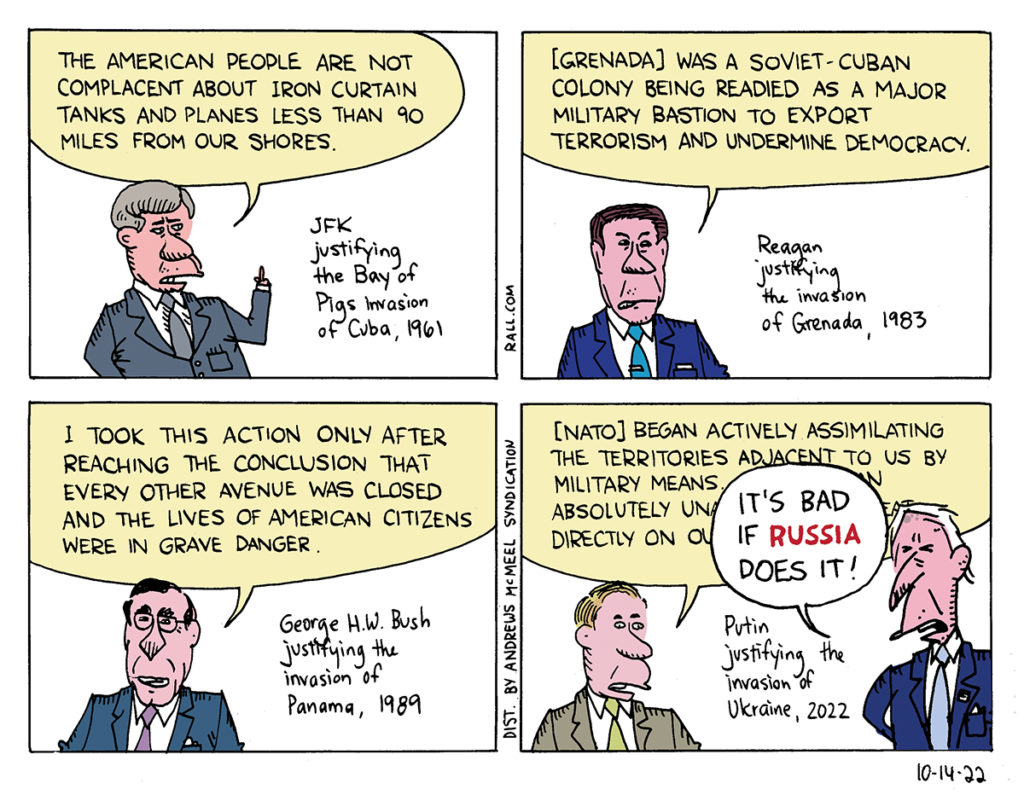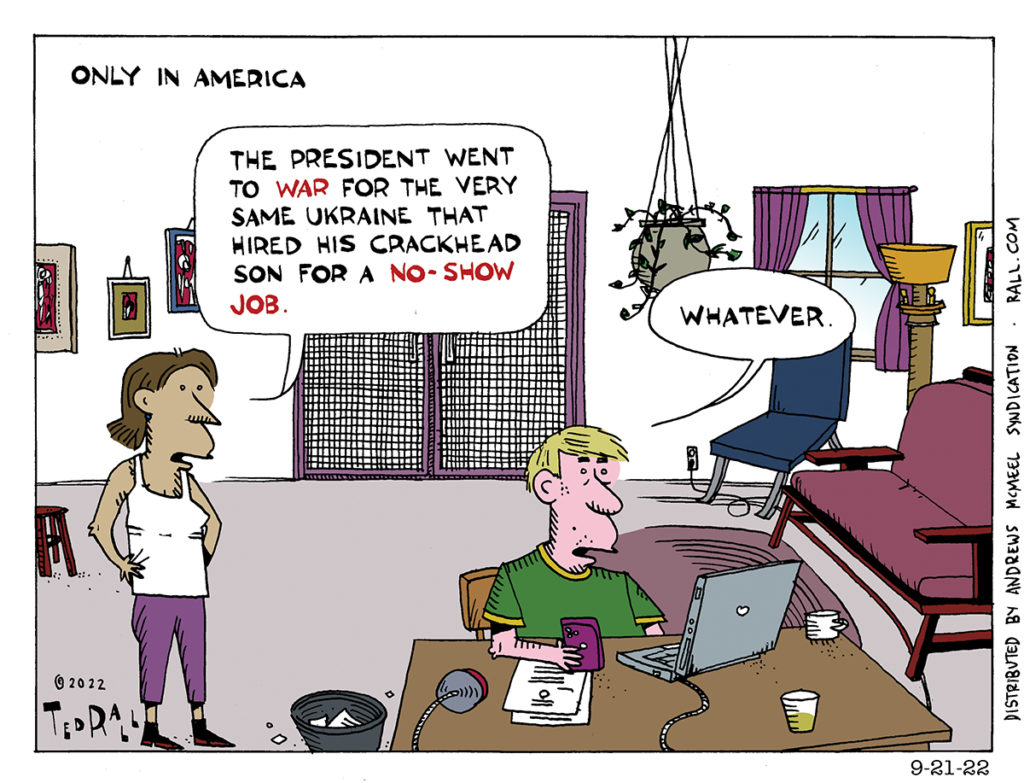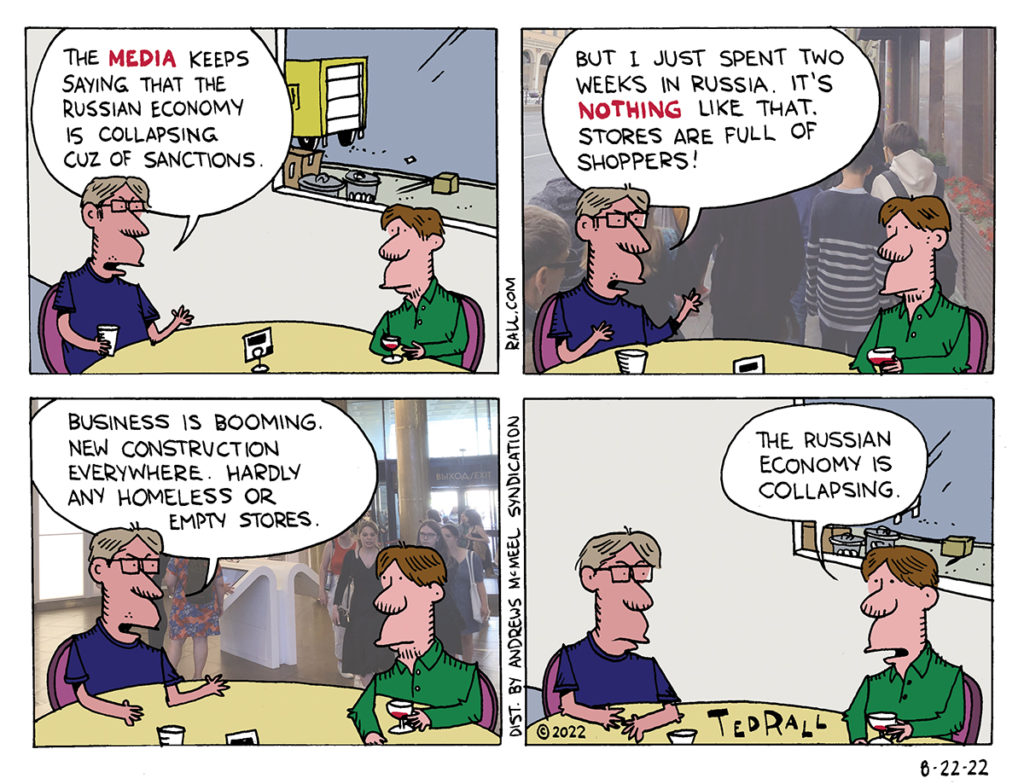Leftie cartoonist Ted Rall and rightie cartoonist Scott Stantis file their last analysis and handicap before the 2022 midterm elections, both in agreement that things currently bleak for Democrats. Evidence surfaces implicating the British Navy in the bombing of the Nordstream 2 gas pipeline. Congressional progressive Democrats are humiliated by having to withdraw their tepid call for diplomacy between Ukraine and Russia. Speculation abounds surrounding the brutal hammer attack against Nancy Pelosi’s husband in their San Francisco home.



